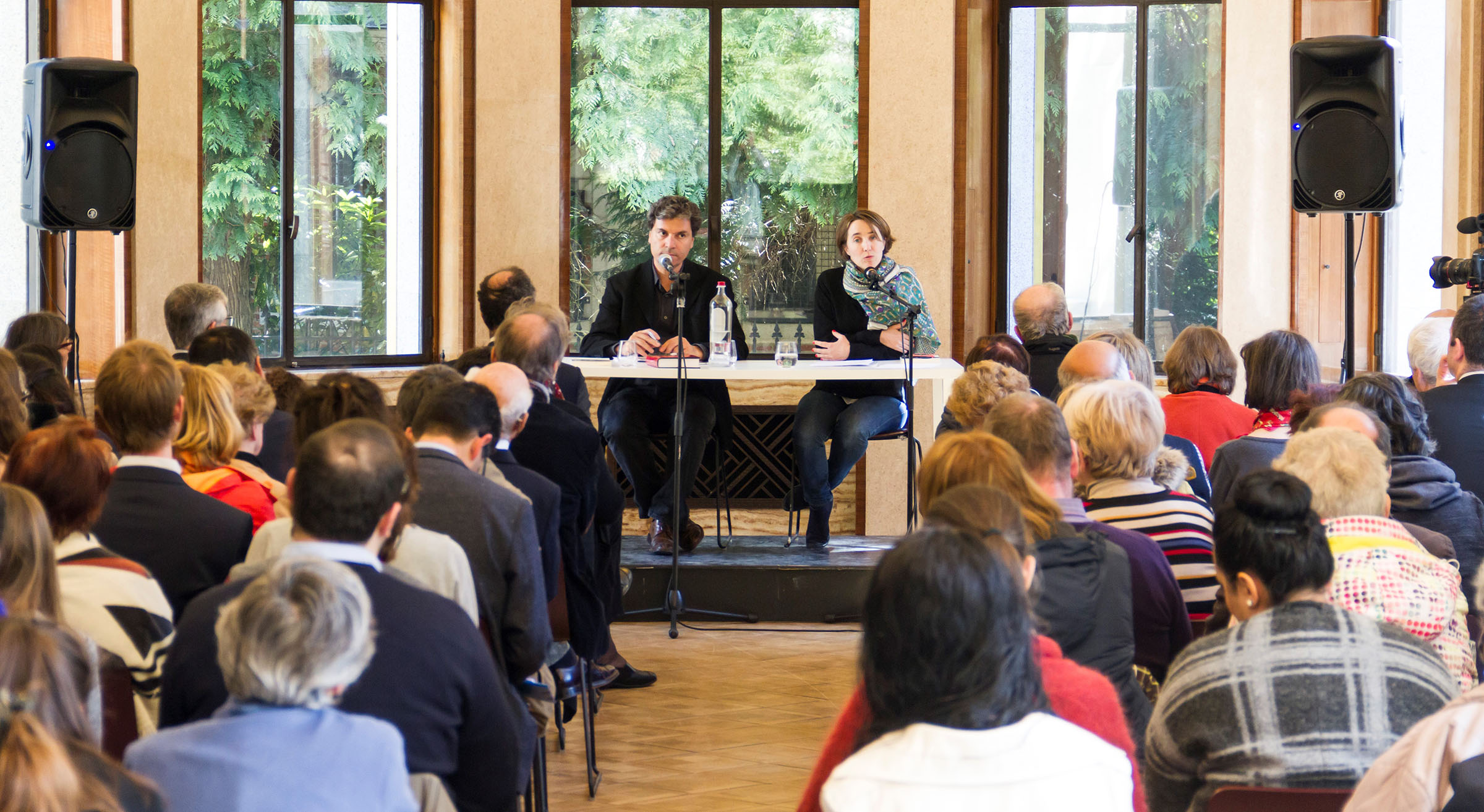On April 26, the Armenian Committee of Belgium (Comité des Arméniens de Belgique) in partnership with AGBU Europe and the Secular Jewish Community Centre (CCLJ), with the support of the Boghossian Foundation, organized a seminar in Brussels on teaching the Armenian Genocide in French-speaking Belgian high schools as well as a conference on the contemporary significance of the genocide. This initiative was financed by the Belgian government through the educational division of the Fédération Wallonie-Bruxelles and represented the first step toward the larger goal of expanding knowledge of the Armenian Genocide within the Belgian educational sphere.
The morning seminar brought together 15 secondary school teachers and education professionals to diagnose the state of teaching of the Armenian Genocide. Participants shared their experience teaching the subject, their difficulties and the reasons why many do not teach it. The Belgian educational system neither mandates, nor prevents teachers from teaching the Armenian Genocide and the seminar confirmed that few teachers currently broach the subject at school due to a lack of information, a lack of resources, a lack of time, and a wish to avoid a sensitive topic.
Available resources and teaching tools were discussed and presented to them by Ina Van Looy of the CCLJ whose educational program against hate speech includes the Armenian Genocide and its denial. The partners in this project intend to follow up on these seminar meetings, particularly, by continuing to encourage teachers to include the Armenian Genocide in their curriculum and by providing them with stimulating, quality teaching materials.
The public conference that took place after the seminar focused on the contemporary repercussions of the genocide. The conference aimed to help demonstrate that the event should be an important part of historical culture as it provides significant background to many of the events of the twentieth century. For professor of Armenian language and literature at the University of Leuven, Bernard Coulie, genocide is a product of Western thought and civilization, and isolating these events from the rest of history, or reducing them to a bilateral matter (e.g. between the Turkish and Armenian peoples) prevents us all from learning the right lessons.
Laure Marchand, a French journalist and expert of Turkey, shared her account of the shockwaves of the genocide in Turkish society in recent years, a century after the event, as illustrated in the book she co-authored, La Turquie et le fantôme arménien (Turkey and the Armenian Ghost).
A third speaker, Vicken Cheterian, political analyst and professor at the University of Geneva presented, in turn, how the genocide affected Armenian identity and history in the Middle East, emphasizing in particular that “it is not possible to understand current events in the Middle-East without an understanding of the genocide of 1915.”
The conference ended with a lively and interactive discussion, which led to a deeper understanding of several of the themes discussed, including a debate on how best to advance the teaching of the genocide in schools.
“It is so important that the Armenian story be told in schools. We are particularly grateful to the authorities and to the teachers we worked with for their interest and support. It is now incumbent on us to help them by providing lively, stimulating educational resources,” says AGBU Europe director Nicolas Tavitian.
For more information on AGBU Europe, please visit https://agbueurope.org/.
Established in 1906, AGBU (www.agbu.org) is the world’s largest non-profit Armenian organization. Headquartered in New York City, AGBU preserves and promotes the Armenian identity and heritage through educational, cultural and humanitarian programs, annually touching the lives of some 500,000 Armenians around the world.




















































